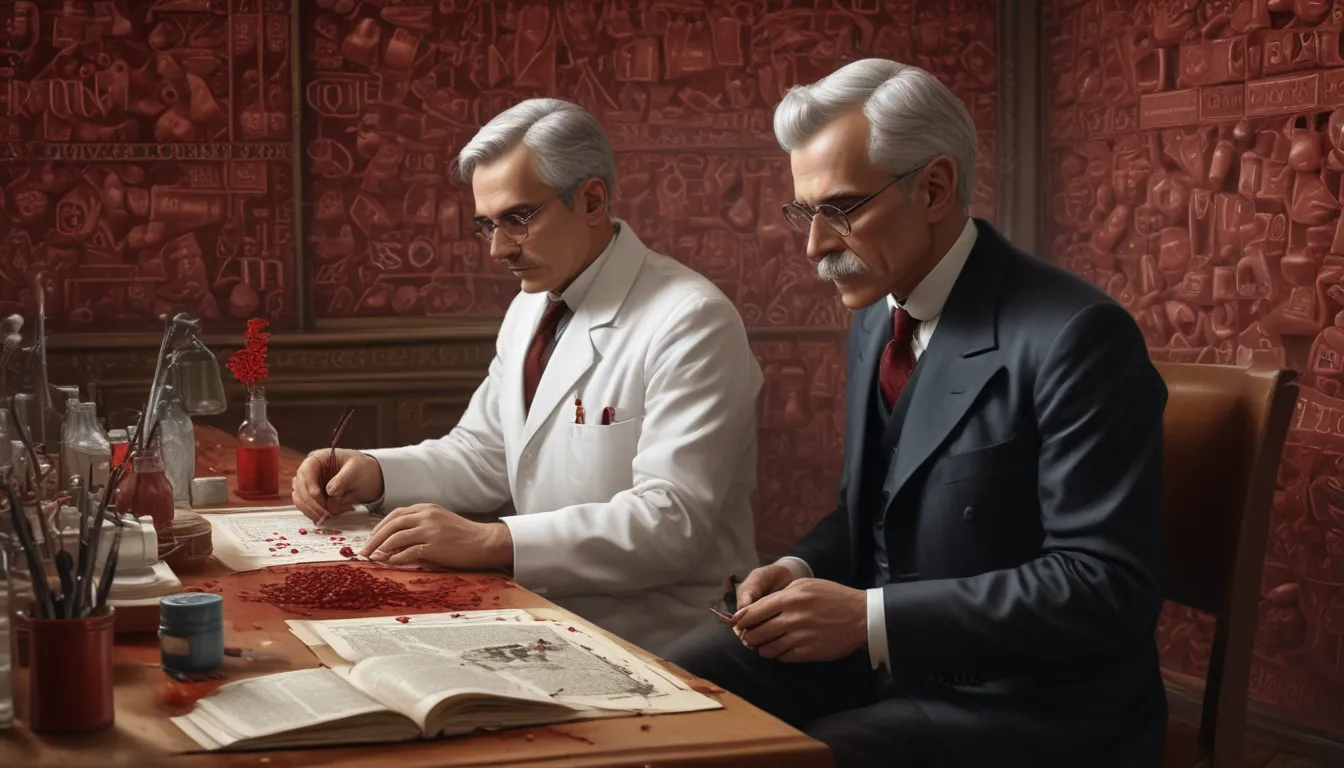The images in our articles may not match the content exactly. They are used to grab your attention, not to show the exact details in the text. The images complement the text but do not replace it.
Immunology and blood transfusions have been revolutionized by the remarkable work of Karl Landsteiner, an Austrian scientist born in 1868 in Vienna. His groundbreaking discoveries in the field of blood groups have had a profound impact on medicine, saving countless lives and shaping the way we understand human genetics and disease diagnosis. Let’s delve into the fascinating life and accomplishments of Karl Landsteiner by exploring 19 unbelievable facts that highlight his immense contributions.
The Father of Blood Groups
Karl Landsteiner is widely recognized as the “Father of Blood Groups” due to his pioneering work in the field of blood transfusion. His discovery of the ABO blood group system revolutionized medical practices and laid the foundation for safe blood transfusions.
The ABO Blood Group System
Landsteiner’s ABO blood group system categorizes blood into four major types: A, B, AB, and O. This system enabled safe blood transfusions by understanding compatible blood types, thereby reducing the risk of transfusion reactions.
The Rhesus Factor
In addition to the ABO system, Landsteiner played a key role in identifying the Rhesus factor, a protein found on the surface of red blood cells. This discovery paved the way for the Rh blood group system, further enhancing our understanding of blood compatibility.
Landsteiner’s Nobel Prize
In 1930, Karl Landsteiner received the Nobel Prize in Physiology or Medicine for his groundbreaking discovery of the ABO blood groups. This prestigious recognition solidified his legacy in the scientific community and highlighted the importance of his contributions to medicine.
The Impact on Immunology
Landsteiner’s work extended beyond blood groups to encompass a wide range of immunological research. He made significant contributions to areas such as autoimmune diseases, antibody formation, and infectious diseases like typhus.
Landsteiner’s Law
Among his numerous discoveries, Landsteiner formulated a fundamental principle known as “Landsteiner’s Law,” which explains the agglutination process that occurs when incompatible blood types come into contact. This law has had a lasting impact on blood compatibility testing.
Career Achievements
Throughout his career, Landsteiner demonstrated academic excellence and received international recognition for his groundbreaking research. His collaborations with notable scientists further advanced the field of immunology and led to significant advancements in medical science.
Landsteiner’s Humanitarian Spirit
Beyond his scientific endeavors, Karl Landsteiner’s passion for improving healthcare and promoting medical advancements for the benefit of humanity set him apart as a compassionate and dedicated scientist.
Legacy and Recognition
Karl Landsteiner’s legacy continues to shape modern medicine, with the ABO and Rh blood group systems serving as the cornerstone of blood transfusion practices worldwide. His impact on genetics, disease diagnosis, and healthcare practices has earned him numerous accolades and recognition.
World Blood Donor Day
In honor of Landsteiner’s contributions, the international community celebrates World Blood Donor Day on his birthday, June 14th. This annual event raises awareness about the importance of safe blood transfusions and acknowledges Landsteiner’s impact on transfusion medicine.
The Landsteiner Medal
To honor individuals who have made significant advancements in transfusion medicine and immunology, the prestigious Landsteiner Medal was established. This award recognizes the ongoing legacy of Karl Landsteiner and celebrates those who continue to advance the field.
Conclusion: Embracing Karl Landsteiner’s Legacy
In conclusion, Karl Landsteiner’s remarkable journey and unparalleled contributions to medicine have left an indelible mark on the scientific community. His discoveries have reshaped our understanding of blood transfusions, immunology, and human genetics, paving the way for safer and more effective healthcare practices. As we continue to unravel the mysteries of blood groups and immunology, we are reminded of the extraordinary legacy of Karl Landsteiner and the enduring impact of his groundbreaking research.
FAQs
-
Who was Karl Landsteiner?
Karl Landsteiner was an Austrian immunologist and pathologist known for his discovery of the ABO blood group system, for which he received the Nobel Prize in Physiology or Medicine in 1930. -
What was Karl Landsteiner’s contribution to medicine?
Karl Landsteiner’s discovery of the ABO blood group system revolutionized transfusion medicine and made blood transfusions safer by ensuring compatibility between donors and recipients. -
How did Karl Landsteiner discover the ABO blood group system?
Karl Landsteiner identified the ABO blood group system through experiments that revealed different blood types and their compatibility. This discovery laid the foundation for modern blood typing practices. -
What impact did Karl Landsteiner’s discovery have on medicine?
Karl Landsteiner’s discovery of the ABO blood group system had a profound impact on medicine, leading to safer blood transfusions and advancements in immunology and genetics. -
What is the significance of the Rh factor?
The Rh factor, discovered by Karl Landsteiner, plays a critical role in blood compatibility and pregnancy outcomes. Understanding the Rh factor has expanded our knowledge of human genetics and immunology.
Unraveling the mysteries of blood groups and immunology has never been more fascinating, thanks to Karl Landsteiner’s groundbreaking discoveries. His legacy continues to inspire scientists and medical professionals worldwide, shaping the future of healthcare and scientific research. Join us in celebrating the remarkable achievements of Karl Landsteiner and embracing the enduring impact of his contributions to the field of medicine.






